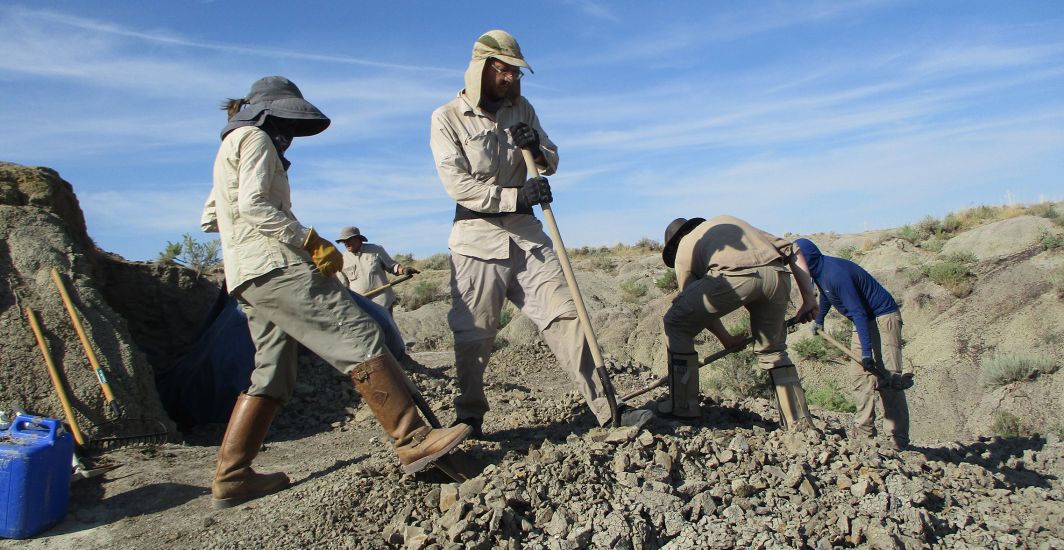Careers in Biology

What you can do with a biology degree
The Carthage biology curriculum prepares students for graduate study and entry into medical, veterinary, dental, physical therapy, and other professional schools. In addition, graduates may pursue careers in academic and industrial research, secondary education, quality assurance, forensic science, and a variety of not-for-profit and governmental environmental and conservation areas.
Most biological scientists choose to specialize in one area of biology:
- Aquatic biology — micro-organisms, plants, and animals living in water
- Biochemistry — chemical composition of living things
- Biophysics — how physics relates to living cells
- Botany — plants and their environments
- Ecology — relationships among organisms and their environments
- Marine biology — salt water organisms
- Microbiology — microscopic organisms such as bacteria or fungi
- Physiology — life functions of plants and animals
- Zoology — animals and wildlife
A bachelor’s degree in biology is adequate for some non-research positions:
- Biological scientists in testing or inspection
- Research assistants
- Laboratory technicians
- High school biology teachers
A master’s degree is sufficient for some positions in the following areas:
- Applied research
- Product development
- Management
- Inspection
- Research technician
- Teaching
Many biology majors go on to medical, dental, veterinary, or other health profession schools. A Ph.D. is usually necessary for independent research, industrial research, and college teaching.
(This list includes careers requiring differing degrees of education and training.)
- Physical Therapist
- Occupational Therapy
- Dentist
- Veterinarian
- Dermatologist
- Ophthalmologist
- Medical Doctor
- Public Health
- Physicians Assistant
- Physical Biochemist
- Immunologist
- Pharmacist
- Agricultural Scientist
- Conservation Scientist
- Forensic Scientist
- Virologist
- Wetlands Ecologist
- Zoologist
- Lab Technician
- Microbiologist
- Physician
- Game Biologist
- Forester
- Laboratory Specialist
- Horticulturalist
- Florist
- Medical Examiner
- Aquarium/Zoo Administrator
- Archaeologist — Kadrmas, Lee & Jackson
- Associate Podiatrist — Kettering Podiatry Associates
- Conservation Education and Animal Welfare Keeper — Racine Zoological Society
- Education Specialist — Santa Barbara Zoological Society
- Laboratory Technologist — Medical College of Wisconsin
- Laboratory Technician — Quest International
- Medical Technologist — Vista Health
- Pharmacy Technician — Walgreens
- Quality Lab Technician — Abbott Laboratories
- Research Associate — Institute of Ophthalmology, University College London
- Senior Food Technologist — Plum Organics
- Wildlife Conservation Educator — Wisconsin Department of Natural Resources
- Veterinarian — Kenosha Animal Hospital
- Yale — Genetics
- College of William and Mary — Ph.D. Marine Science
- Tufts University
- Rush Medical School
- University of Wisconsin-Green Bay
- Mississippi State — Master’s in Fisheries Management
- South Dakota State University — Ph.D. in Fisheries Management
- Illinois College of Optometry
- University of Hawaii — Food Science
The following organizations and websites offer information about admission to medical schools and other health professional programs:
- Pre-Health — Pre-Health at Carthage
- Pre-Medical — Association of American Medical Colleges: American Medical College Application Service
- Pre-Pharmacy — American Association of Colleges of Pharmacy Application Service
- Pre-Dental — American Dental Association
- Pre-Veterinary — Association of American Veterinary Medical Colleges
- Pre-Physician Assistants — American Academy of Physician Assistants
Visit The Aspire Center for more info on careers after Carthage
Learn more about careers in the biological sciences from the Bureau of Labor Statistics
